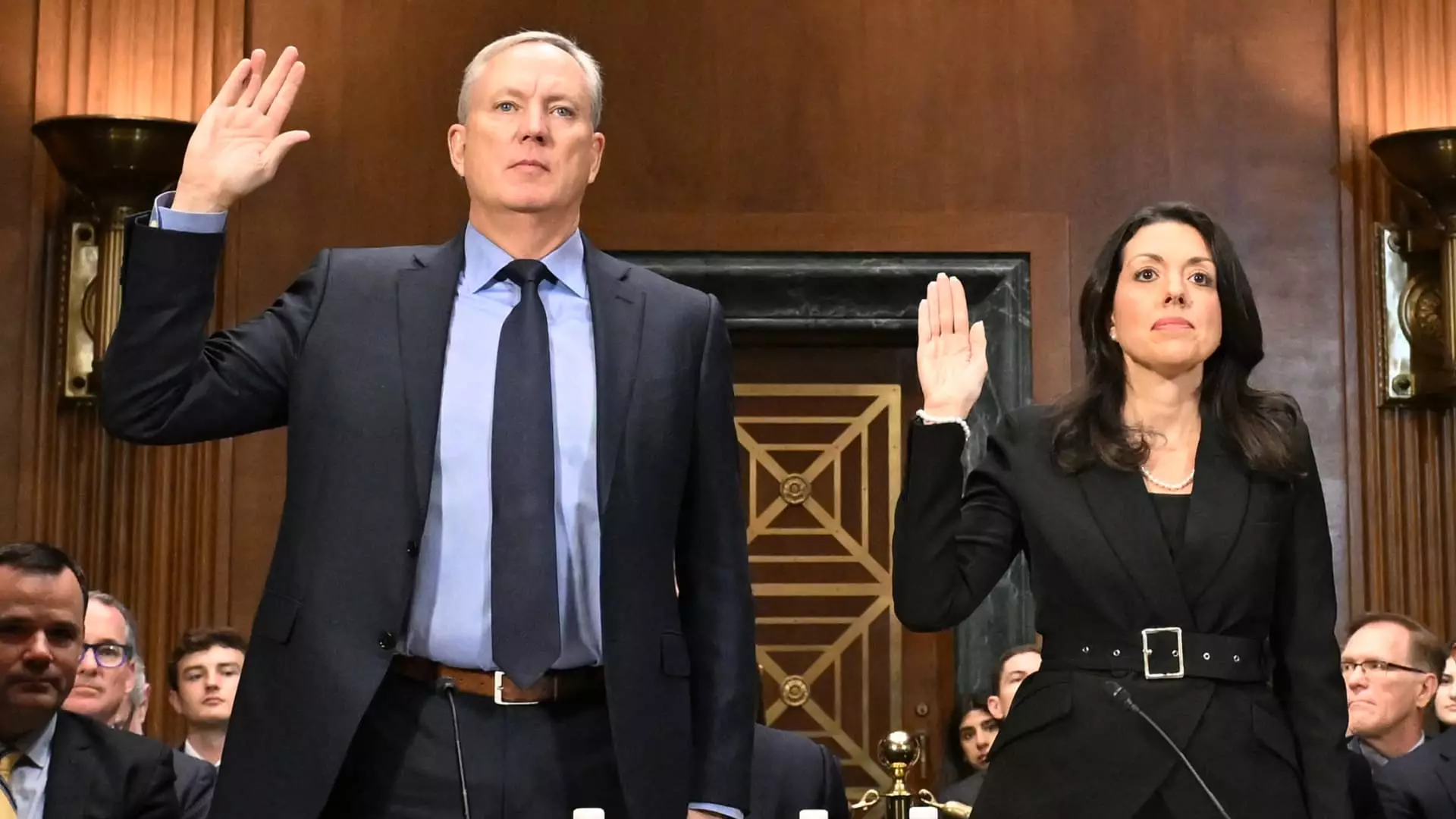The recent Senate Judiciary Committee hearing has provided a platform for a critical examination of the powerful position held by Visa and Mastercard in the credit card payment ecosystem. Lawmakers have converged across ideological lines, expressing shared concerns regarding the perceived “duopoly” that these two major players hold in the market. This unyielding grip, as emphasized by Senator Dick Durbin, has left many small businesses with minimal bargaining power, particularly regarding the interchange fees that are often regarded as exorbitant. These fees, effectively the cost of doing business with credit card transactions, can be seen as an unfair burden on merchants and customers alike.
Interchange fees, also referred to as swipe fees, represent an intricate and often opaque set of costs that merchants are obligated to pay each time a consumer uses a credit card. With Visa and Mastercard commanding a staggering 80% of the market—which amounts to a combined market capitalization exceeding $1 trillion—these fees have substantial ramifications. Senator Durbin highlighted alarming figures, noting that in 2023 alone, more than $100 billion in fees were charged to merchants. This phenomenon not only affects small businesses but also tends to ripple through the economy, eventually impacting consumer prices.
The proposed Credit Card Competition Act aims to shake the foundations of this established order by mandating that banks with significant asset bases offer alternative payment networks to Visa and Mastercard. As articulated by Durbin, this legislation could grant small businesses a fair choice, allowing them to mitigate costs associated with processing card payments. A sensible alternative could lead to increased competitiveness and possibly reduce operational costs that many small merchants currently face.
In response to these legislative moves, representatives from Visa and Mastercard have presented staunch defenses of their interchange fee structures. According to Bill Sheedy from Visa, the fees serve as necessary incentives that underpin the extensive services and security measures provided to consumers. He contended that by implementing new technologies aimed at reducing risks—such as fraud—merchants could lower their interchange costs. However, this assertion raises further questions. If reducing fraud and improving transaction security are achievable goals, why are these efforts not being uniformly adopted across the board?
Mastercard representatives also cautioned that structural changes like the Credit Card Competition Act could inadvertently undermine consumer choice. They pointed to past regulatory encounters, like the Durbin amendment to the Dodd-Frank Act, as harbingers of potential adverse consequences, claiming that such regulations led to higher fees and diminished rewards for debit users. Yet, these warnings appear to be a strategic maneuver to protect their entrenched interests.
Despite the fierce defense put forth by the card networks, retailers maintain that high credit card swipe fees inevitably lead to inflated prices for consumers. The National Retail Federation highlighted that the ongoing burden of these fees has a cascading effect on consumer spending. Professor Roger Alford weighed in with striking statistics, revealing that an average American spends around $1,100 annually on swipe fees—this figure exceeds expenditures on pets, coffee, or alcohol. Such data elucidates the unseen ways in which monetary policies shaped by these card companies affect everyday lives.
To illustrate further, consider the implications of Visa and Mastercard’s market control; their practices not only stifle competition but also limit consumer choice in payment options. The legislative landscape is evolving, as demonstrated by the recent Justice Department lawsuit against Visa, which alleges that the company is sustaining an illegal monopoly over debit card payment networks. Such developments underline a growing call for rigorous scrutiny over the practices employed by these corporate giants.
The hearing before the Senate Judiciary Committee serves as a potential turning point in regulating a sector that has long been perceived as monopolistic. As legislative discussions unfold, the emphasis on fairness and transparency in credit card transactions appears as a timely priority. The Credit Card Competition Act, with bipartisan support, signals a willingness from lawmakers to challenge the status quo and advocate for changes that could ultimately benefit both businesses and consumers. As we move toward a more equitable payment landscape, it is vital for all stakeholders to remain engaged and informed about the evolving dynamics within the financial ecosystem.

